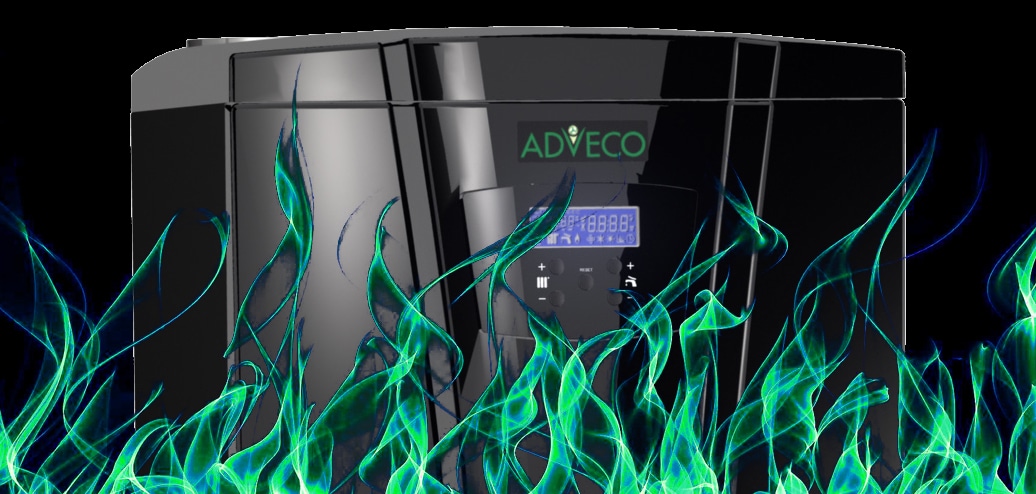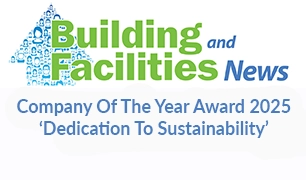When it comes to specifying commercial gas heating, COP26 has heightened awareness for the need to reduce fossil fuel consumption, and with most of the national infrastructure currently ‘on gas’ and delivering half of the UK’s non-transport primary energy needs, building owners and operators will be looking at their options.
For older properties that account for a high proportion of the existing commercial building stock, a transition to all-electric applications, or implementing effective use of heat pumps, can represent a costly, technical challenge. As such, many will be looking to hydrogen alternatives. But with a government decision on the technology not due until 2026, its’ usage, if supported nationally, will take time to become commonplace. As such natural gas-fired boilers will, for the time being, remain a preferred option for the provision of commercial space heating, so how can this help drive sustainability into the built environment?
Increasingly stringent legislation aimed at reducing carbon emissions and hazardous air pollutants is already driving the specification of systems that are based on high efficiency condensing boilers, or a hybrid approach that combines these boilers with heat pumps to provide low carbon, effective heating.
The cost-saving functionality of high-efficiency condensing gas boilers can be readily demonstrated, but what of the air quality and sustainability of the technology?
Commercial Gas Heating – Sustainability & Air Quality
Adveco’s MD boiler range, for instance, has been designed so that the highest efficiency is at the low end of the firing range, condensing boilers typically operate at 94-95% combustion efficiency. MD’s high-efficiency pre-mix burner can achieve ideal combustion efficiency of up to 107% (net)/98% (gross) reducing energy costs and producing low emissions. With low CO (19 ppm) and NOX (34 mg/Nm³) emissions, a heating system built around a high-efficiency MD condensing boiler (Class 6 appliance) easily satisfies the requirements of the Energy-related Products (ErP) directive when specifying commercial gas heating in a building.
Adveco’s MD boiler range, for instance, can be used to create a cascade of up to eight 280 kW units, each combining four 70kW heat engines pre-stacked in a single, elegant casing. This approach can provide more than 2200kW while occupying minimal plant room floor space. Correctly sized and professionally commissioned, such boiler cascade systems with high-efficiency pre-mix burner can provide a high 1:20 modulation ratio. This, along with built-in cascade control ensures that efficiencies are maximised no matter the heating load of the building. With the input of the boiler easily altered to closely match the heating load, the system is better able to derive as much heat out of the exhaust gases as possible. This efficient reuse of heat also results in low flue gas temperatures allowing for the use of standard 80-160mm diameter plastic flue pipe (PP). PP is efficient, environmentally friendly, and significantly cheaper than stainless steel, offering a cost-effective and space-saving alternative in terms of pipe run.
For commercial projects that face the most stringent legislation and oversight, high-efficiency condensing boilers remain a realistic and effective means of meeting the demands for improved building sustainability. Especially if used as part of a hybrid system where continuous low-grade heat from the heat pump works alongside the fast responsiveness of the gas boiler to top up the heating at electricity peak demand times, thus avoiding the requirement for higher carbon-emitting generators. Crucially, and despite recent price fluctuations, gas continues to offer considerable economic advantages in terms of operational costs for built assets. We currently would still therefore advocate a modular cascade concept. This takes full advantage of the compact size afforded by condensing natural gas boiler technology, such as the MD, with its low-water content heat engines, and built-in redundancy. The latest generation of condensing gas boilers represent a familiar, reliable response to a building’s heating demands that dramatically improve on the efficiency of older boiler technology to deliver immediate emission reductions. Critically this approach retains the infrastructure necessary for the introduction in the next decade of green gas variants with all the promises of much lower carbon emissions that will carry the commercial sector towards the national net zero goal by 2050.
















